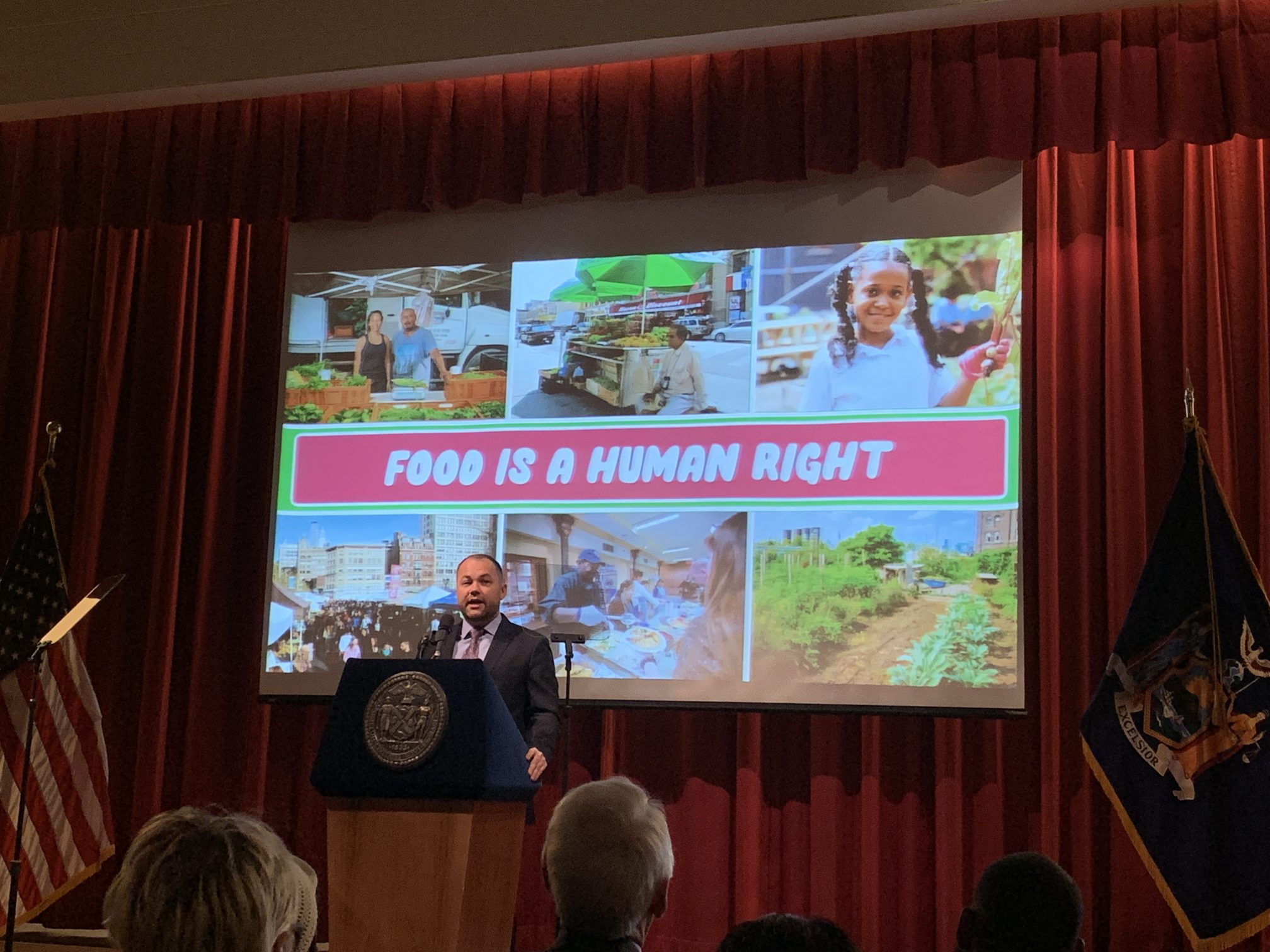‘Food is love’: Council speaker unveils multi-pronged plan to increase food equity

The implementation of food court-style cafeterias is just one of the strategies improving the way students eat, City Council Speaker Corey Johnson said Thursday from a Brooklyn school known for its exceptional nutritional programming.
Johnson joined Councilmember Rafael Espinal at P.S./I.S. 89, Cypress Hills Community School — the first in Brooklyn to have its own rooftop community garden — to announce a multi-pronged plan of policy proposals to combat food inequity, as outlined in a new report.
“Access to adequate nutritious food is a human right,” Johnson told a room full of colleagues, educators and food equity advocates. “This principle isn’t just for developing countries,” he went on — it’s relevant right here in New York City, “one of the richest cities in the world.”

Brooklyn Boro
View MoreNew York City’s most populous borough, Brooklyn, is home to nearly 2.6 million residents. If Brooklyn were an independent city it would be the fourth largest city in the United States. While Brooklyn has become the epitome of ‘cool and hip’ in recent years, for those that were born here, raised families here and improved communities over the years, Brooklyn has never been ‘uncool’.